Ditapis dengan

Architects of Buddhist leisure
Buddhism, often described as an austere religion that condemns desire, promotes denial, and idealizes the contemplative life, actually has a thriving leisure culture in Asia. Justin McDaniel looks at the growth of Asia’s culture of Buddhist leisure through a study of architects responsible for monuments, museums, amusement parks, and other sites. In conversation with noted theorists of materi…
- Edisi
- -
- ISBN/ISSN
- 9780824865986
- Deskripsi Fisik
- xi, 215 p.; 22 cm.
- Judul Seri
- -
- No. Panggil
- 155.09 MCD a

Consciousness and moral status
In this book Joshua Shepherd presents a systematic account of the value present within conscious experience. This account emphasizes not only the nature of consciousness, but also the importance of items within experience such as affect, valence, and the complex overall shape of particular valuable experiences. Shepherd also relates this account to difficult cases involving non-humans and h…
- Edisi
- -
- ISBN/ISSN
- 9781138221611
- Deskripsi Fisik
- 122 p.; 23 cm.
- Judul Seri
- -
- No. Panggil
- 155 SHE c
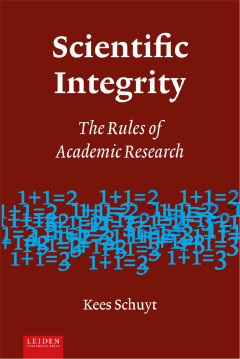
Scientific integrity :the rules of academic research
The growing attention for scientific integrity is part of a wider culture of professionalization and accountability − which appears to signal that integrity is no longer self-evident as a core value of professional conduct. Examples abound. But what is scientific integrity? Why does it matter? What are the issues, and what is at stake? What do we know about the nature and scope of violations …
- Edisi
- -
- ISBN/ISSN
- 9789400602182
- Deskripsi Fisik
- 182p. : ill.
- Judul Seri
- -
- No. Panggil
- 174.95072 SCH s
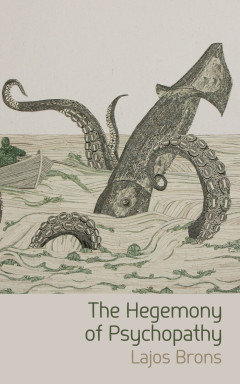
The Hegemony of psychopathy
Any social and political arrangement depends on acceptance. If a substantial part of a people does not accept the authority of its rulers, then those can only remain in power by means of force, and even that use of force needs to be accepted to be effective. Gramsci called this acceptance of the socio-political status quo “hegemony.” Every stable state relies primarily on hegemony as a sour…
- Edisi
- -
- ISBN/ISSN
- 9781947447165
- Deskripsi Fisik
- 120 p.; 22 cm.
- Judul Seri
- -
- No. Panggil
- 157 BRO h
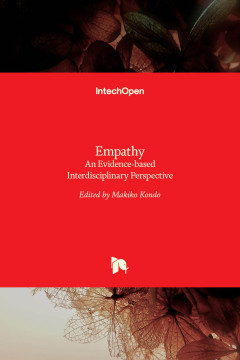
Empathy - an evidence-based interdisciplinary perspective
Empathy, a basic ability for understanding persons holistically, building supportive relationships, and listening attentively, includes being with suffering persons, healing, and inducing catharsis in them. Therefore, it is necessary within occupations supporting humans: education, clinical psychology, nursing, early childhood care, welfare, and medicine. Conversely, there are individual differ…
- Edisi
- -
- ISBN/ISSN
- 9789535134534
- Deskripsi Fisik
- 180 p.; 22 cm.
- Judul Seri
- -
- No. Panggil
- 155.4 EMP e

Time Distortions in mind
Time Distortions in Mind brings together current research on temporal processing in clinical populations to elucidate the interdependence between perturbations in timing and disturbances in the mind and brain. For the student, the scientist, and the stepping-stone for further research.
- Edisi
- -
- ISBN/ISSN
- 9789004230644
- Deskripsi Fisik
- 406 p.; 22 cm.
- Judul Seri
- -
- No. Panggil
- 153.753 TIM t

Crisis management - theory and practice
Crisis management is an interdisciplinary subject field represented by theoretical problems, practical activity, people management and the art of crisis situation solving. Overall, the studies that this publication contains are to provide an overview of the state of the art mainly focused on crisis management cycle represented by certain phases and steps. Topics include also lessons learned fro…
- Edisi
- -
- ISBN/ISSN
- 9781789232349
- Deskripsi Fisik
- 268 p.; 22 cm.
- Judul Seri
- -
- No. Panggil
- 144.2116 CRI c
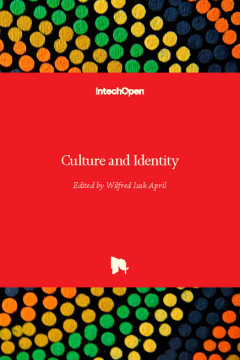
Culture and identity
This book is a wonderful celebration of culture and identity, especially from the cultural lens of the various authors' nation of origin. Culture is viewed as a collective programming of the mind and is at times compared to an onion?the more you peel off the layers, the more you get to learn about the values, beliefs, and norms of the respective societies. As complex as the onion diagram is, an…
- Edisi
- -
- ISBN/ISSN
- 9781838813154
- Deskripsi Fisik
- 122 p.; 23 cm.
- Judul Seri
- -
- No. Panggil
- 144.2116 CUL c

Digital humanities and digital media:conversations on politics, culture, aest…
There is no doubt that we live in exciting times: Ours is the age of many ‘silent revolutions’ triggered by startups and research labs of big IT companies; revolutions that quietly and profoundly alter the world we live in. Another ten or five years, and self-tracking will be as normal and inevitable as having a Facebook account or a mobile phone. Our bodies, hooked to wearable devices sitt…
- Edisi
- -
- ISBN/ISSN
- 9781785420306
- Deskripsi Fisik
- -
- Judul Seri
- -
- No. Panggil
- 144.2116 SIM d

Religious experience in the Hindu tradition
This Special Issue of Religions brings together a talented group of international scholars who have studied and written on the Hindu tradition. The topic of religious experience is much debated in the field of Religious Studies, and here, we present studies of the Hindu religious experience explored from a variety of regions and perspectives. Our intention is to show that the religious experien…
- Edisi
- -
- ISBN/ISSN
- 9783039210503
- Deskripsi Fisik
- -
- Judul Seri
- -
- No. Panggil
- 181.4 REL r

Affect and mathematics education:fresh perspectives on motivation, engagement…
This open access book, inspired by the ICME 13 topic study group “Affect, beliefs and identity in mathematics education”, presents the latest trends in research in the area. Following an introduction and a survey chapter providing a concise overview of the state-of-art in the field of mathematics-related affect, the book is divided into three main sections: motivation and values, engagement…
- Edisi
- -
- ISBN/ISSN
- 3030137600
- Deskripsi Fisik
- 437 p.; 22 cm.
- Judul Seri
- -
- No. Panggil
- 155.4 AFF a

Digital classical philology
This book describes the state of the art of digital philology with a focus on ancient Greek and Latin. It addresses problems such as accessibility of information about Greek and Latin sources, data entry, collection and analysis of Classical texts and describes the fundamental role of libraries in building digital catalogs and developing machine-readable citation systems.
- Edisi
- -
- ISBN/ISSN
- 9783110596786
- Deskripsi Fisik
- 362 p.; 22 cm.
- Judul Seri
- -
- No. Panggil
- 100 BER d

Modes of philology in medieval South India
In Modes of Philology in Medieval South India, Whitney Cox rethinks the textual practices of a diverse collection of scholars and poets writing in Sanskrit, Tamil, and Prakrit in far southern India between the 11th and the 14th centuries CE.
- Edisi
- -
- ISBN/ISSN
- 9789004331679
- Deskripsi Fisik
- 208 p.; 22 cm.
- Judul Seri
- -
- No. Panggil
- 100 COX m

Epistemology and transformation of knowledge in global age
This book consists of seven chapters containing multiple questions of the global socially epistemological situation in science and higher education. Despite the progress of techno-sciences, we are facing blind flaws in leading systems of knowledge and perception. The global era, in a paradox way, connects the new knowledge of economics, postpolitics, postdemocracy, and biopolitical regulation o…
- Edisi
- -
- ISBN/ISSN
- 9789535133872
- Deskripsi Fisik
- 148 p.; 22 cm.
- Judul Seri
- -
- No. Panggil
- 100 EPI e
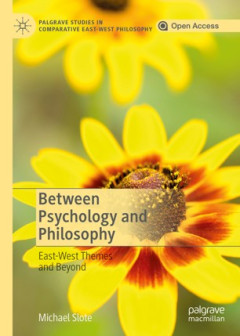
Between psychology and philosophy :east-west themes and beyond
This open access book discusses a variety of important but unprecedented ways in which psychology can be useful to philosophy. The early chapters illustrate this theme via comparisons between Chinese and Western philosophy. It is argued that the Chinese notion of a heart-mind is superior to the Western concept of mind, but then, more even-handedly, the relative strengths and weaknesses of Chine…
- Edisi
- -
- ISBN/ISSN
- 9783030225032
- Deskripsi Fisik
- x, 215p. : ill.
- Judul Seri
- -
- No. Panggil
- 101 SLO b
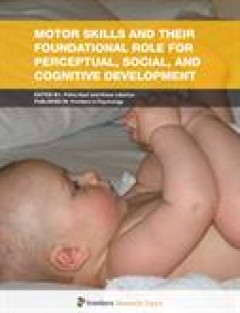
Motor skills and their foundational role for perceptual, social, and cognitiv…
Motor skills are a vital part of healthy development and are featured prominently both in physical examinations and in parents’ baby diaries. It has been known for a long time that motor development is critical for children’s understanding of the physical and social world. Learning occurs through dynamic interactions and exchanges with the physical and the social world, and consequently mov…
- Edisi
- -
- ISBN/ISSN
- 9782889451593
- Deskripsi Fisik
- 293 p.; 22 cm
- Judul Seri
- -
- No. Panggil
- 155.4 LIB m

Perception in Aristotle’s Ethics
Rabinoff strives to account for ethical perception (aisthesis) in Aristotle’s ethics—to give it a place of importance in ethical choice and action—and to offer an account of the faculty of perception expansive enough to include reception of the ethical significance of particulars. The book is motivated by particular features of Aristotle’s thought and by increasing philosophical awarene…
- Edisi
- -
- ISBN/ISSN
- 9780810136434
- Deskripsi Fisik
- IX, 196 p.
- Judul Seri
- -
- No. Panggil
- 171.3 RAB p

Space in Hellenistic Philosophy :Critical Studies in Ancient Physics
The volume discusses the notion of space by focusing on the most representative exponents of the Hellenistic schools and explores the role played by spatial concepts in both coeval and later authors who, without specifically thematising these concepts, made use of them in a theoretically original way. Renowned scholars investigate the philosophical significance and bring to light the problemati…
- Edisi
- -
- ISBN/ISSN
- 9783110365856
- Deskripsi Fisik
- XII, 224 p.
- Judul Seri
- -
- No. Panggil
- 114.0938 HEL s

Moral History from Herodotus to Diodorus Siculus
Why did human beings first begin to write history? Lisa Irene Hau argues that a driving force among Greek historians was the desire to use the past to teach lessons about the present and for the future. She uncovers the moral messages of the ancient Greek writers of history and the techniques they used to bring them across. Hau also shows how moral didacticism was an integral part of the writin…
- Edisi
- -
- ISBN/ISSN
- 9781474411073
- Deskripsi Fisik
- VIII, 312 p.
- Judul Seri
- -
- No. Panggil
- 170.938 HAU m

Introduction to a Future Way of Thought on Marx and Heidegger
"Technologists only change the world in various ways in generalized indifference; the point is to think the world and interpret the changes in its unfathomability, to perceive and experience the difference binding being to the nothing." Anticipating the age of planetary technology Kostas Axelos, a Greek-French philosopher, approaches the technological question in this book, first published in 1…
- Edisi
- -
- ISBN/ISSN
- 9783957960054
- Deskripsi Fisik
- 183p.
- Judul Seri
- -
- No. Panggil
- 193 INT i
 Karya Umum
Karya Umum  Filsafat
Filsafat  Agama
Agama  Ilmu-ilmu Sosial
Ilmu-ilmu Sosial  Bahasa
Bahasa  Ilmu-ilmu Murni
Ilmu-ilmu Murni  Ilmu-ilmu Terapan
Ilmu-ilmu Terapan  Kesenian, Hiburan, dan Olahraga
Kesenian, Hiburan, dan Olahraga  Kesusastraan
Kesusastraan  Geografi dan Sejarah
Geografi dan Sejarah